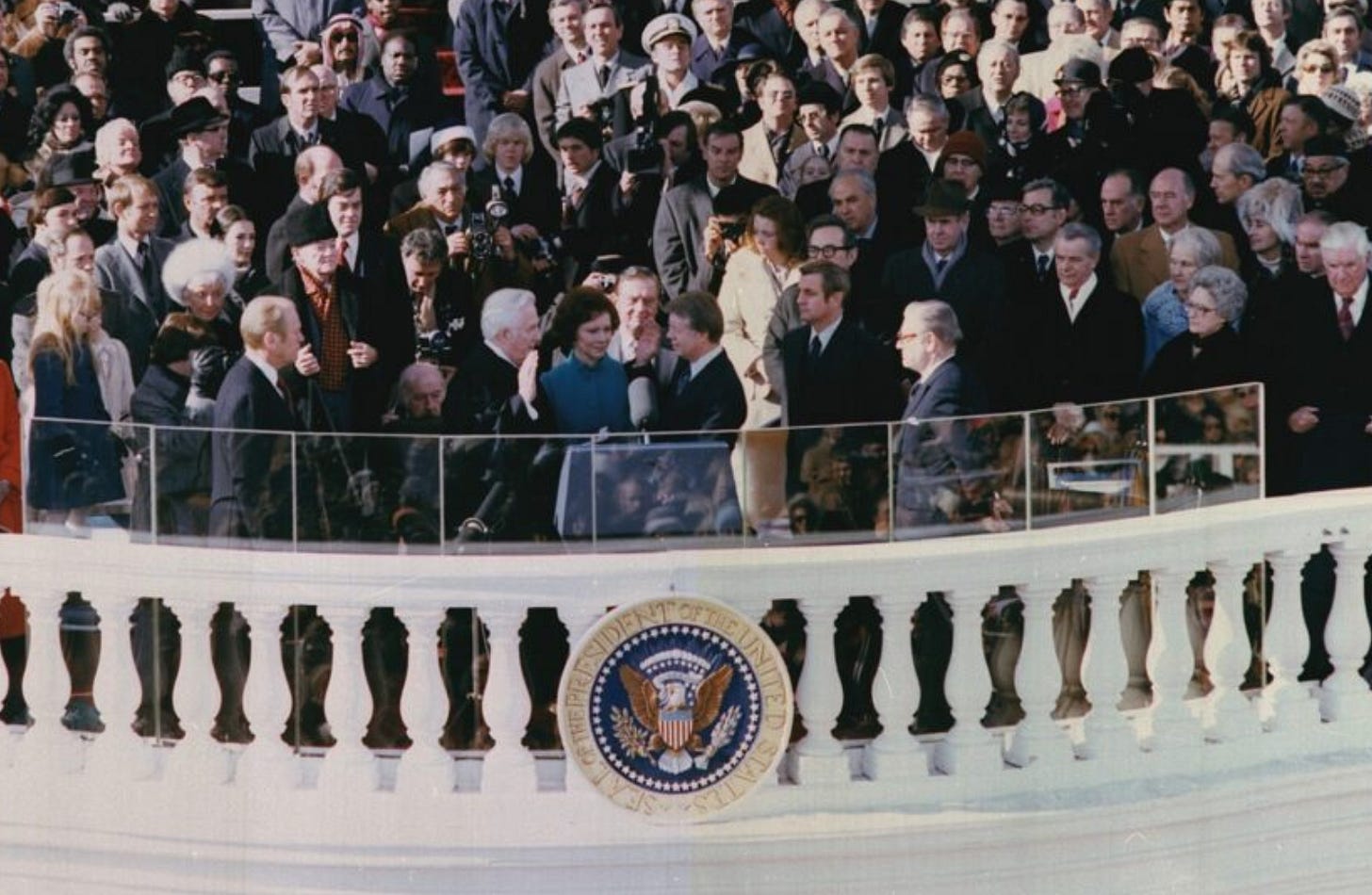Jimmy Carter's life gives us a framework for living humanely in this moment
The 39th president died on Sunday, at 100, in his beloved hometown of Plains, Georgia. His legacy and lessons live on. Also, for paid subscribers: Closing my tabs.

Jimmy Carter died at 100 on Sunday at his home in Plains, Georgia, more than 40 years after the former president left the White House and less than 40 days before Donald Trump will return to it.
It would be trite to merely compare the incomparable men. But the lessons of Jimmy Carter — the lessons of his life — are as important to the rest of us today as they ever were in the decades of his ex-presidency.
The 39th president was, above all, a humane person who believed in humanity.
Sometimes, that was more front and center for him than at others, as in his work with Habitat for Humanity. As the organization’s leader said in a statement on Sunday, “President and Mrs. [Rosalynn] Carter began volunteering with Habitat for Humanity near their home in southwest Georgia more than 40 years ago, and soon brought worldwide attention to the need for decent and affordable housing. We are grateful for the incredible impact the Carters have had on Habitat and on the families who have benefited from their shining example. The Carters put Habitat for Humanity on the map, and their legacy lives on in every family we serve around the world.“
This is a statement about a former president, and, yes, it was Habitat’s statement, but, even so, it says so much that the immediate reflection is about how his individual action, beginning locally, ultimately has had a global effect. From his early life to his presidency to the Carter Center and his other post-presidency work, the connective tissue of Jimmy Carter’s life was an understanding that his humanity was most fully realized when acknowledging others’ humanity and working to support others in being able to fully realize their own humanity.
His work to diversify the federal judiciary changed America courts forever, and his belief in the value of seeking out — and working toward — peace in even the most difficult moments and challenging places changed the world.
In recent weeks, there have been countless times when the response to my or others’ writings about a potentially damaging case or piece of legislation; a plan from Trump or one of his allies; or, bluntly, pretty much anything regarding any of the branches of the federal government is met with some combination of inevitability, pessimism, or nihilism.
I get it. I really do. Many bad things are likely going to happen to many people in the coming years. There could be extremely difficult times ahead.
And yet. Opposition to, preparations for, and responses to those things are as important as the actions causing those harms. There are few better principles that I can imagine for motivating the action we need now than working to be humane people who believe in humanity.
When I look at Jimmy Carter’s life and accomplishments, I believe that he has provided us with several important guidelines for living humanely this moment:
We must be steadfast in our principles — and be willing to speak out to advance those principles.
We need not believe that our institutions will protect us to hold out an expectation that they should.
We should do what we can to hold those institutions accountable, improve them where we can, and discard them if we determine that they are not salvageable.
We must do what we can to protect one another when those institutions fail us, as they inevitably will.
Those with more — materially and otherwise — must stand up for and support those with less.
We must remain humble and be willing to learn.
These are not easy guidelines to adhere to, and I’m sure that Carter himself failed in doing so at times even as I think he exemplifies them. But, the goal remains.
“I think every human being has within himself or herself a desire to reach out to others and to share some of our blessings with those who are in need,” Habitat quoted Carter as having said.
We would all do well these days and in those that are to come by remembering that.
Closing my tabs
This Sunday, here are the tabs I’m closing:



